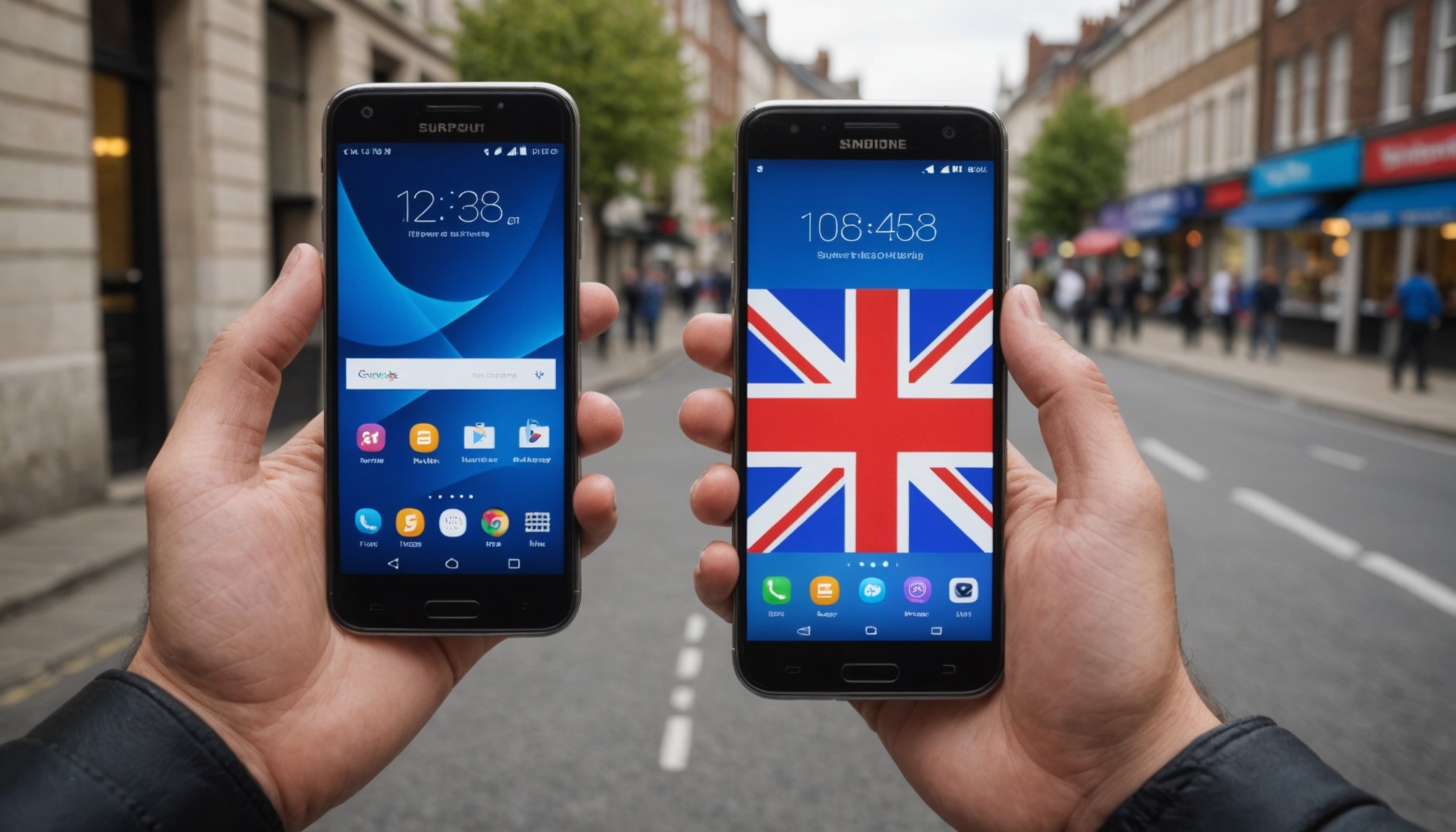Core technologies in UK smartphones that support advanced mobile computing
UK smartphones now boast cutting-edge processing power that enables smooth and efficient mobile computing. Manufacturers integrate high-performance processors, often featuring multiple cores and advanced architectures, to handle demanding tasks like gaming, video editing, and multitasking. These enhanced mobile computing technologies ensure that everyday functions and intensive applications run without lag, meeting the expectations of UK consumers who rely heavily on their devices.
A key element driving this evolution is 5G connectivity. The widespread adoption of 5G in UK smartphones offers significantly faster data speeds and lower latency compared to previous generations. This improvement is critical for seamless access to cloud services, real-time streaming, and augmented reality applications. For the UK market, 5G-enabled mobile computing technologies provide users with reliable and ultra-responsive connections, essential for both personal and professional use.
Have you seen this : What impact do smartphones have on UK education systems?
Beyond raw performance and connectivity, the integration of AI and machine learning features further enhances smartphone capabilities. UK smartphones increasingly incorporate AI-driven processes like voice recognition, predictive text, and camera optimizations. These intelligent features personalize user experiences and improve efficiency by learning user habits and adapting accordingly. The combination of powerful processors, 5G connectivity, and AI integration forms the backbone of advanced mobile computing technologies in UK smartphones today.
Software optimization and support for local UK services
In the UK smartphone ecosystem, software optimization plays a crucial role in ensuring devices perform efficiently and cater to local user needs. Operating systems are regularly updated to address performance issues, security vulnerabilities, and to enhance compatibility with UK-centric apps. These updates help maintain smooth functionality, especially when integrating with local services such as public transport apps, NHS health portals, and banking platforms.
This might interest you : How Do Smartphones Impact the Innovation of Computing in the UK?
UK-specific applications benefit greatly from tailored software support. Developers often collaborate closely with smartphone manufacturers to optimize their apps for local network standards and services, ensuring responsive performance and reliable connectivity. This integration is visible in apps for contactless payment systems like Oyster and mobile ticketing solutions, which rely on seamless operating system compatibility.
Furthermore, partnerships between tech companies and local businesses or institutions enrich app experiences. For example, collaboration with UK banks enhances mobile banking applications, incorporating robust security features and user-friendly interfaces tailored to regional preferences. Similarly, working with healthcare providers improves telehealth apps, directly supporting community health initiatives.
Overall, the synergy between operating system updates, local services integration, and the availability of UK-centric apps fortifies the smartphone ecosystem, making devices more valuable and effective for UK users.
Mobile productivity and security for UK users
Mobile productivity plays a pivotal role for UK professionals who rely heavily on their smartphones to manage work on the go. A suite of productivity apps such as email clients, cloud storage, and task managers has been tailored specifically to meet the diverse needs of UK users. These tools enhance efficiency by enabling seamless collaboration and access to documents anytime, anywhere.
In addition to boosting productivity, security features embedded in UK smartphones have been significantly strengthened to protect sensitive data. Advanced encryption methods, biometric authentication like fingerprint and facial recognition, and regular software updates ensure robust data protection. These measures address concerns about privacy and guard against escalating cyber threats.
For instance, UK businesses have increasingly adopted smartphones with integrated security frameworks, allowing employees to work remotely without compromising confidential information. Such case studies highlight how enterprise solutions leverage both mobile productivity and stringent security protocols to maintain operational continuity while safeguarding corporate assets. This balance between productivity and protection is vital in today’s digital landscape.
Comparing UK smartphone experiences with global counterparts
The UK smartphone market reflects specific nuances that differentiate it from global counterparts. One key difference lies in the availability of certain models. While international models often debut with cutting-edge features and experimental designs, UK versions may prioritize reliability and compatibility with local networks and regulations.
Users often notice that UK smartphones focus on optimized software performance tailored to regional app ecosystems and services. This contributes to a smoother user experience, ensuring essential functions like mobile payments and public transport apps work seamlessly. In contrast, some international devices bring avant-garde hardware but may lack this degree of local optimization.
UK regulations also play a significant role in shaping smartphone innovation. Strict privacy laws and compliance requirements push manufacturers to include enhanced security features in UK releases. Consequently, UK users often benefit from robust data protections not always guaranteed globally.
Overall, the user experience differences stem not just from hardware but from how smartphones integrate within their intended environments. UK models emphasize dependable connectivity, regulatory compliance, and a curated app experience that aligns well with British user preferences. This makes them particularly suited for daily tasks, balancing innovation with practical reliability seen in global smartphone comparisons.
Enhanced user experiences in the UK context
Discovering the advantages of UK smartphones reveals how users benefit from tailored features and services that support a wide range of activities. UK users frequently highlight improved connectivity through widespread 4G and 5G coverage, enabling seamless video calls, streaming, and cloud computing anywhere. Many testimonials emphasize how mobile computing enhancements contribute to greater productivity, especially for professionals relying on real-time data access and remote collaboration.
Unique to the UK market are innovations such as secure mobile payment systems integrated with local banking, as well as apps designed specifically for UK public transport, enhancing daily commutes. These opportunities illustrate how user experiences in the UK are increasingly shaped by localized solutions tailored to both urban and rural settings.
Looking ahead, ongoing innovation in UK mobile computing focuses on AI-driven personalization and sustainability features. Industry experts predict smarter battery management and more intuitive voice assistants tailored to British English and cultural nuances. These advancements promise to elevate user experiences, ensuring that smartphone technology continues to meet evolving needs effectively.




